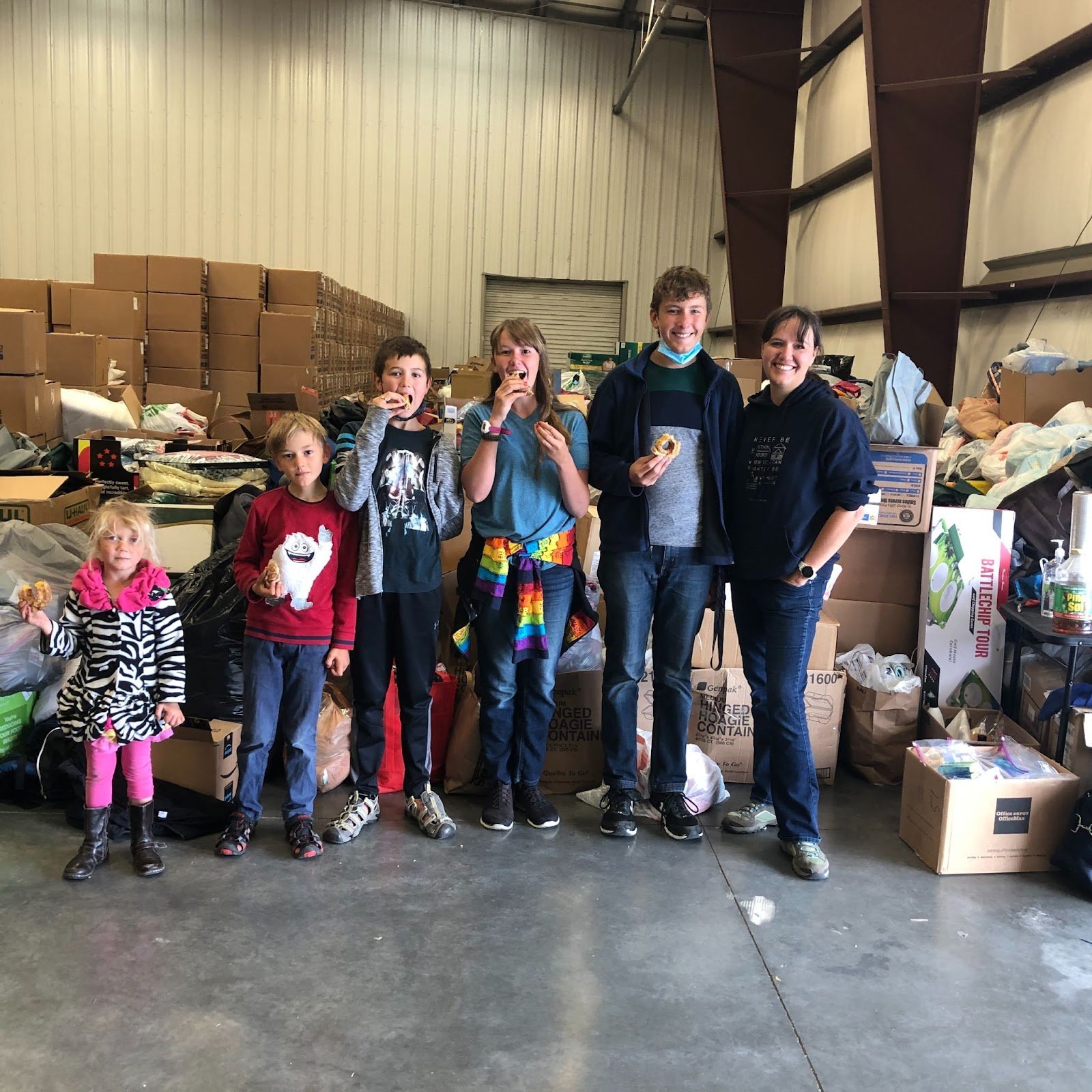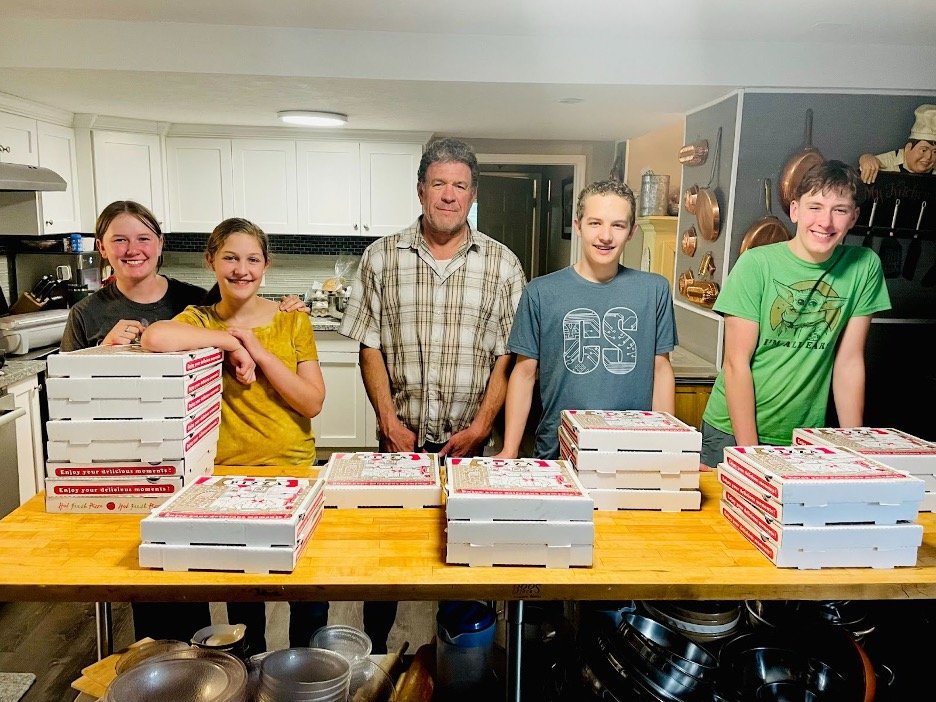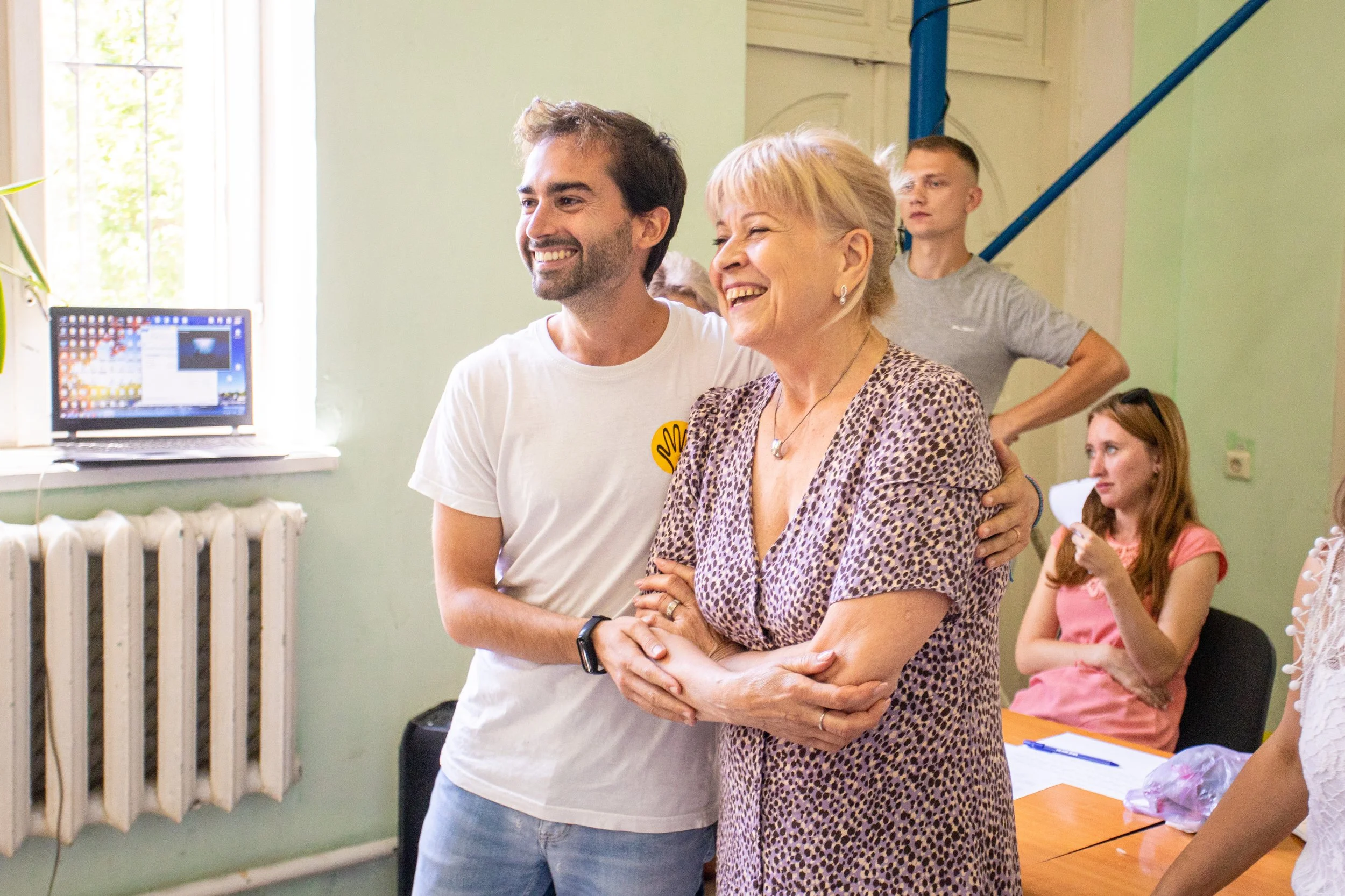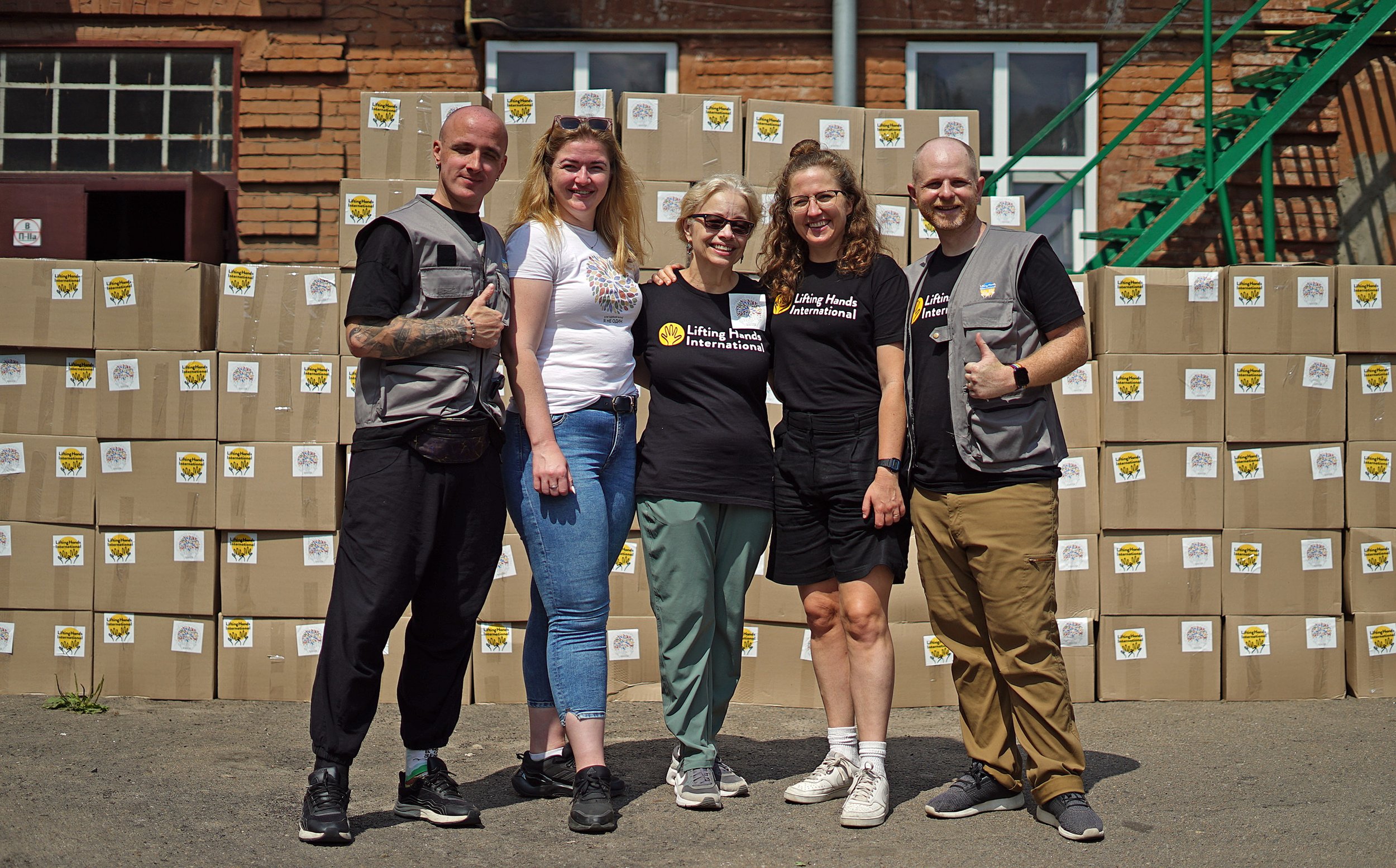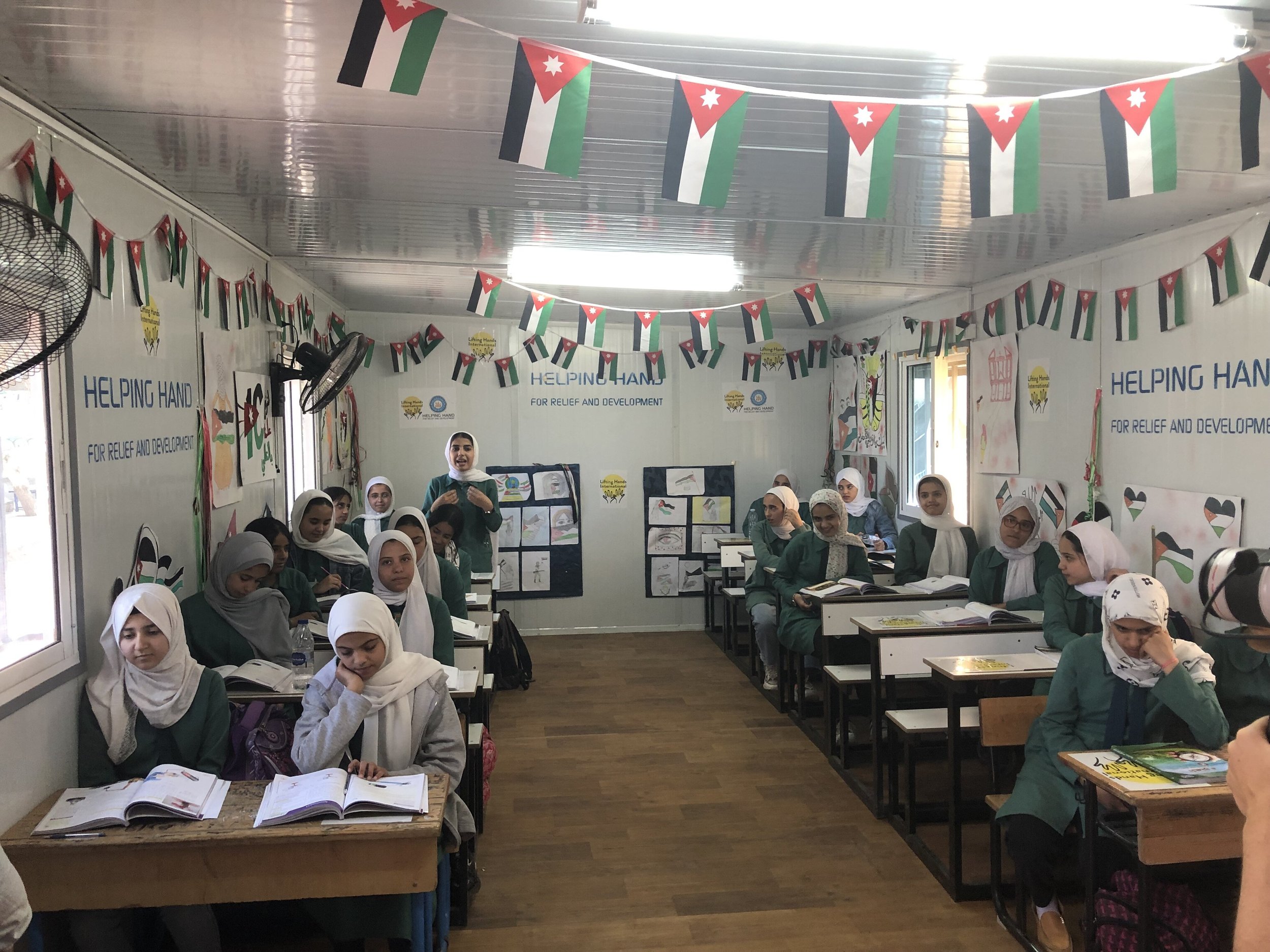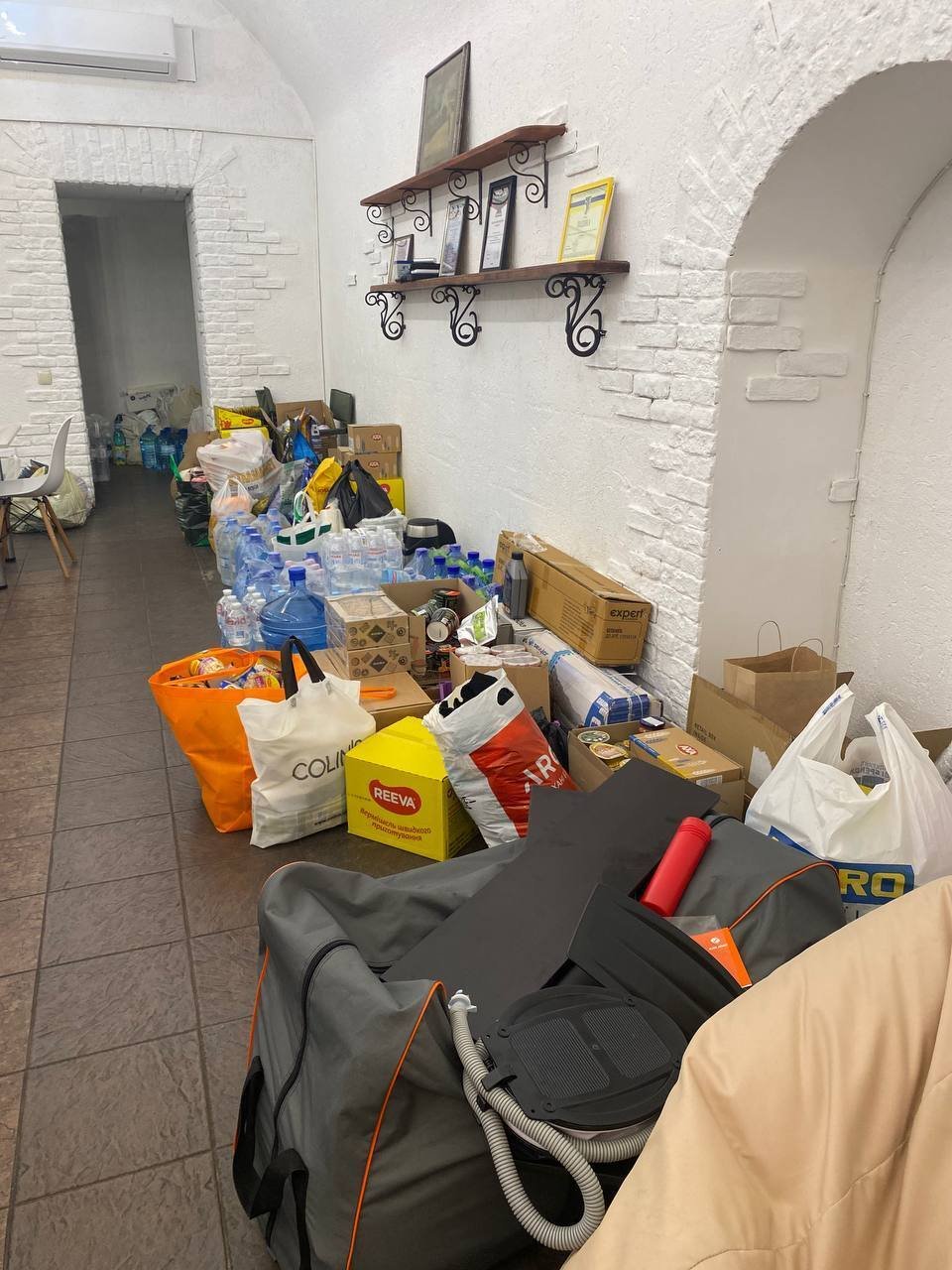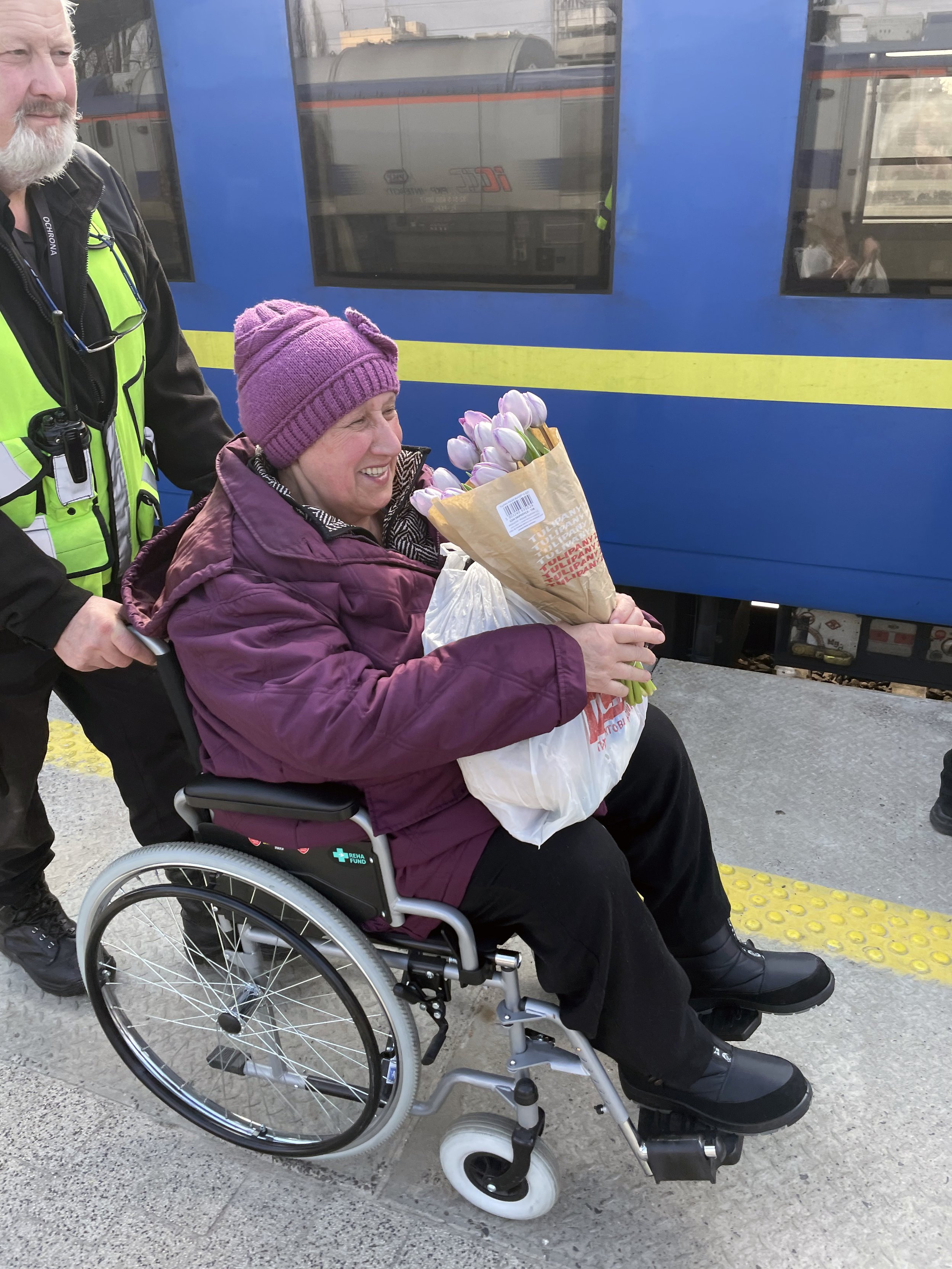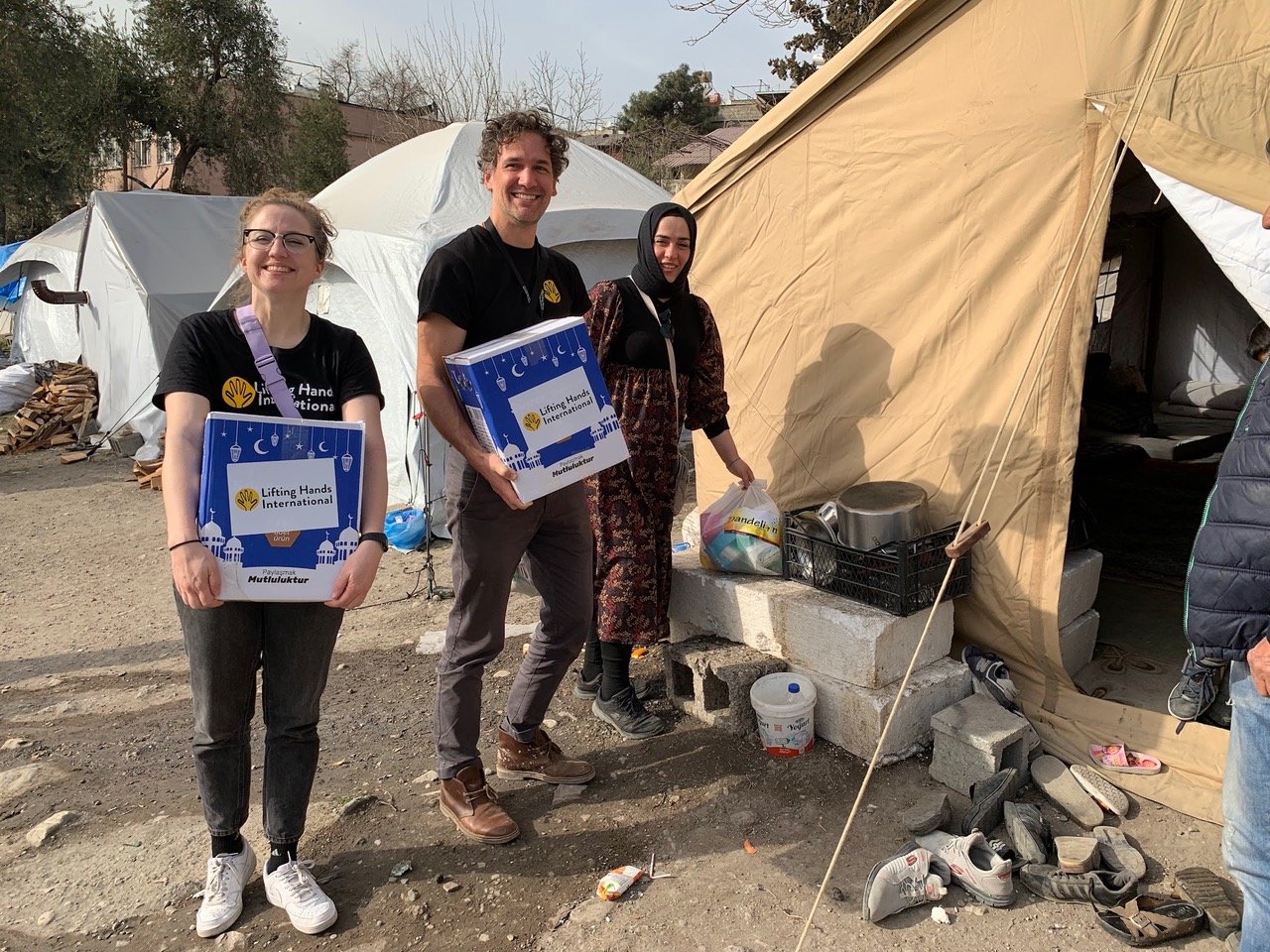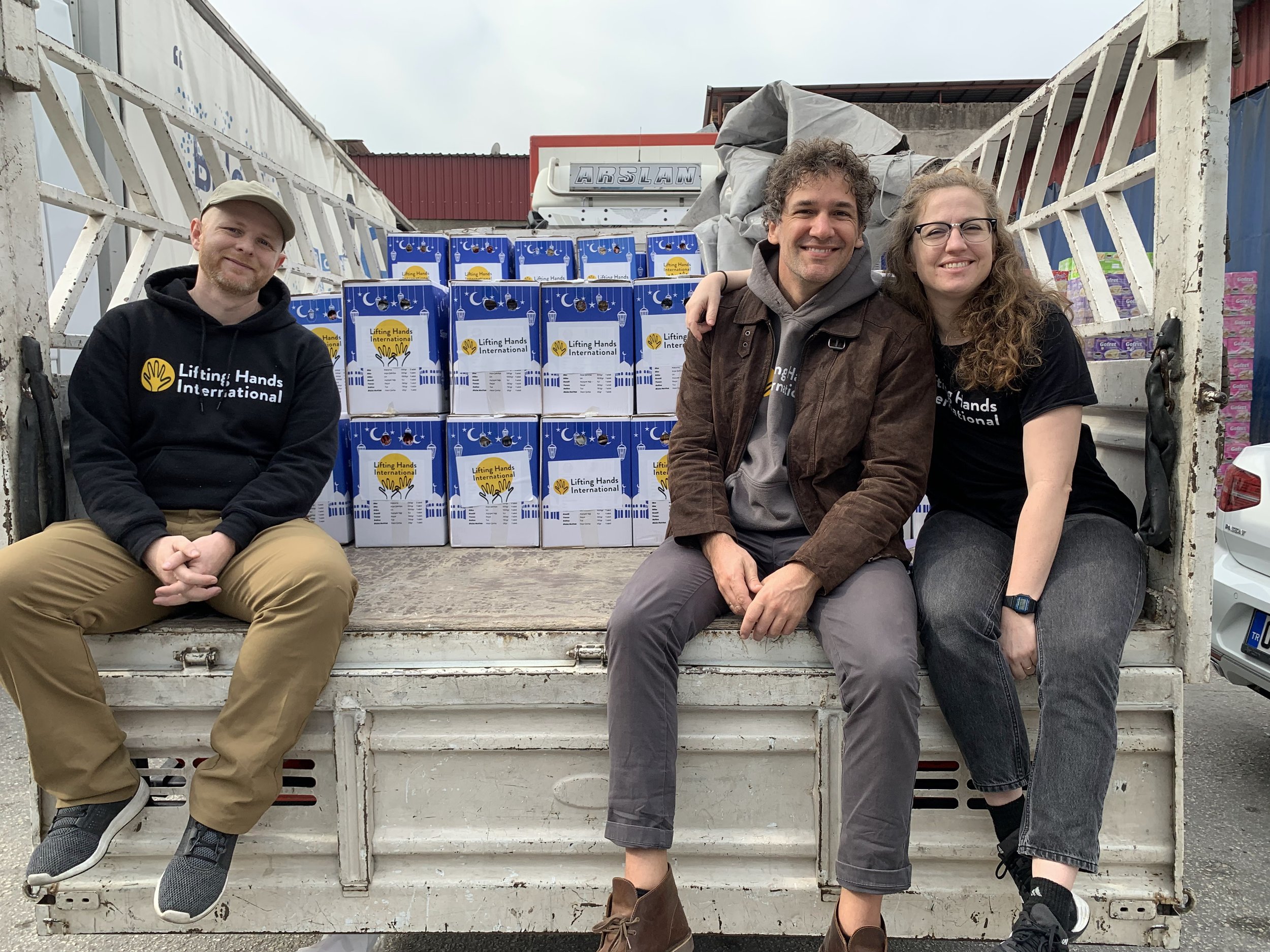by Brigid Rowlings, LHI Communications Director
Meet Zoe Stanfill, the brains behind Goat Girls. The Goat Girls have run 3 fundraisers to raise money to purchase milk goats for Syrian refugees in Jordan.
The Stanfill family are longtime friends of LHI—Vanessa was a team leader for our Welcome Program in Utah, and the family has volunteered in our warehouse and participated in our seasonal Giving Tree program. Perhaps most impressive is the Stanfills’ support for our Gather for Goats program, which was spearheaded by Zoe Stanfill! I just had the most delightful interview with 3 members of the Stanfill family: Vanessa and her two children Zoe, 14, and Jed, 16.
The Stanfill family, Lark, Van, Zane, Zoe, Jed, Vanessa, enjoy a treat while volunteering at the LHI Humanitarian Aid Warehouse.
The Stanfill family was introduced to LHI by a neighbor when they moved to Utah in 2018. From the moment Zoe, then age 9, first heard of the Gather for Goats program, she was dead set on helping a refugee family get one of those goats. She told a few friends about her idea, and they formed a group called Goat Girls.
The Covid-19 pandemic hit during the Goat Girls' first fundraiser. It became harder to sell Rice Krispy treats because people weren't out and about as much, but the Goat Girls kept at it!
The Goat Girls made Rice Krispy treats out of cereal and Tutti Frutti and sold them to neighbors and passers-by from their front lawn. It took the Goat Girls two years to sell enough Rice Krispy treats to donate a pair of milk goats—which they named Tutti Frutti and Marshmallow after the ingredients they’d spent so much time working with!
When the Goat Girls launched their second fundraiser, they decided to work smarter, not harder. They hosted a $25 dollar a plate dinner for their parents. They cooked all the food, prepared pies for dessert, decorated their pop-up restaurant, and served as the waitstaff.
Buoyed by their success, the Goat Girls decided to go bigger the following year. They approached a neighbor, Chef Brad, who runs an in-home bakery and asked him to help them host an even bigger dinner. Chef Brad was willing, but suggested what he thought might be an even better money-maker: pizza! Zoe said, “So we decided to do that. And then we're like, it's the day before Mother's Day. So we're like, ‘What if we just send them uncooked and freeze them and cook them for Mother's Day?’”
Chef Brad and the Goat Girls (and Guys!) pizza crew!
Enter Jed. Not only does Jed have a driver’s license (those pizzas weren’t going to deliver themselves!), but also a head for dough, both literal and metaphoric. He put together the order forms for the pizzas AND set himself the task of turning a 50 pound bag of flour into dough. How much dough? Jed looked very tired as he told me: “We made eight batches. That expands to six and a half five-gallon buckets worth of dough.”
All told, the team sold 127 pizzas at $10 a pizza. Minus their $300 supply cost, they made almost $1,000 on the pizza fundraiser. And, with the help of Vanessa, they also held an online fundraiser that netted them another $2,000.
Zoe with her neighbor Harold who connected her with a donor family that matched the funds she and her friends and family raised for the Gather for Goats program.
But they weren’t done yet! Their neighbor, Harold, a financial manager, told Zoe about a client whose family’s Doing Good Foundation was willing to match the funds they’d raised for goats that year. Harold taught Zoe about how matching donations benefit nonprofits like LHI and why people with means choose to offer matching funds during a campaign. And, he coached her on the art of approaching a major donor and making a pitch. Did Zoe succeed in winning over the matching donor? Indeed she did! In fact, she just gave an impressive presentation to the Doing Good Foundation family to show them what the impact of their gift has been.
Zoe and Jed have learned a lot about fundraising over the past several years. They have this advice for other kids and teens who are thinking about launching their own goat fundraiser.
Make your fundraising appeals personal. Flyers and social media posts are good tools, but calling, visiting or texting friends and relatives individually and asking them for donations gets the best results.
Technology is helpful, except when it isn’t! Jed’s online order forms and the QR codes Zoe and Jed put on fliers worked for some, but older friends and neighbors had difficulty navigating them. Put a phone number on your fliers so people who want to make a donation but are having trouble with the technology can contact you.
Make it a community effort! Invite friends and neighbors to help out. Fundraising is hard work, but doing it with friends makes it fun!
Be persistent. Don’t be afraid to ask for help or for donations. If you don’t get a response, ask again!
People LOVE naming goats! Anyone who donates enough to purchase a whole goat gets to name the goat. People love this. People love this enough to buy a goat!
Thank you so much Vanessa, Zoe, and Jed for taking the time to share your experiences and advice with us! And thank you to other members of the Stanfill family for your support of LHI over the years!
If you are a young person, teacher, or youth program leader and would like to find out more about how you can launch your own Gather for Goats Kids Club Fundraiser, click here!



